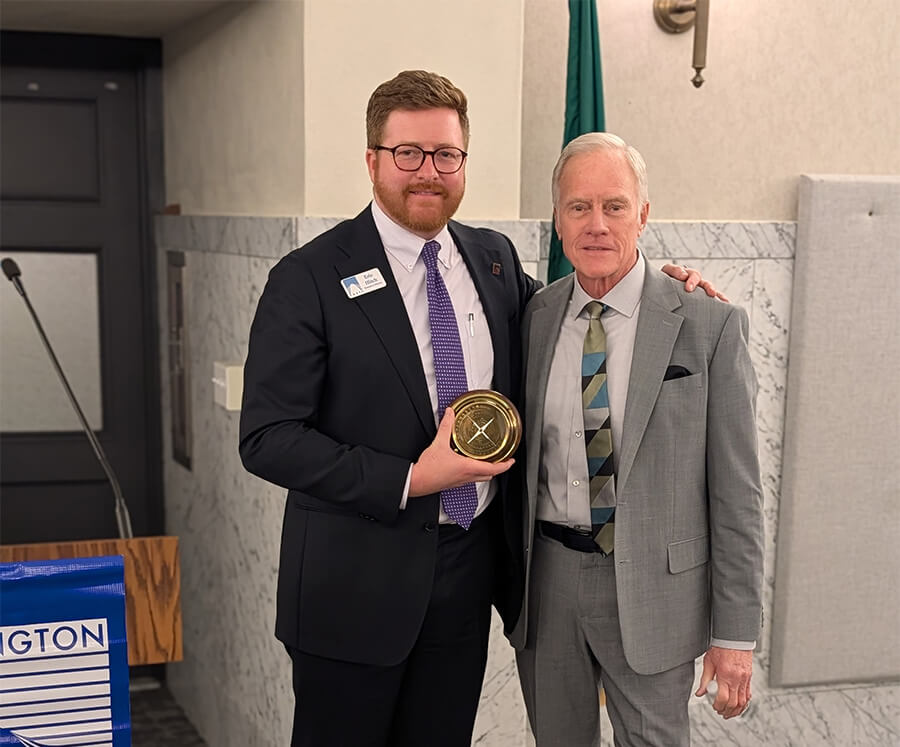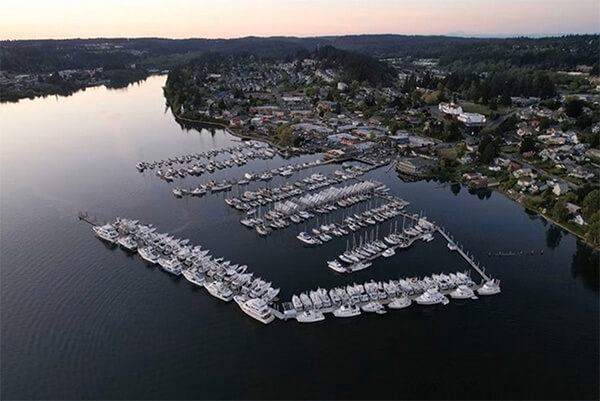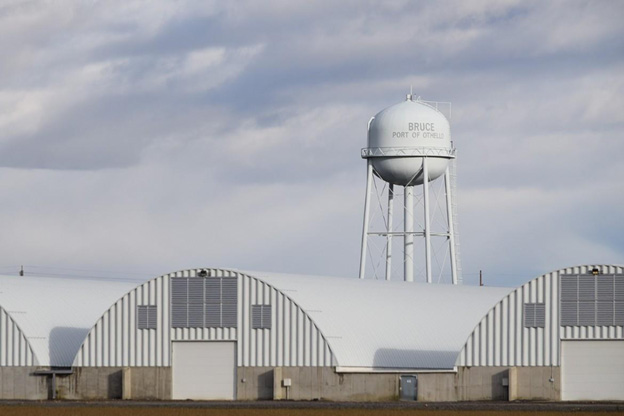FEBRUARY 2023
Knowing the Waters
By Frank Chmelik of Chmelik Sitkin & Davis, P.S. – WPPA Counsel
This month’s column looks at a port’s liability for injuries to visitors on port property. This time of year, while others may be thinking of a quick getaway to a warmer climate, we lawyers are thinking about liability arising from inclement weather. In addition, we see that ports are being asked to provide locations for homeless encampments and we lawyers think about the potential liability for an injury there.
First, a little legal background. Our courts follow a traditional analysis of landowner liability. We look to the “status” of the injured person to determine the duty owed by the landowner. This ”status” analysis is overlayed by the Recreational Use Statute (RCW 4.24.210). With that in mind, when someone is injured on port property we first look to their “status.” There are three types of “status” under the traditional analysis: Business or Public Invitee, Licensees, and Trespassers.
o Business or Public Invitees: These are people that are invited (either expressly or impliedly) onto the port property for some purpose connected with the port’s business or for some purpose for which the property is held open to the public. Think of marina tenants, or a port contractor, employee, or passenger in an airport terminal, or people visiting the port offices to discuss a port issue. Practically speaking most all people on port property are “business or public invitees.” These folks are owed highest duty by landowners. The port must act reasonably to “inspect” the property and then “warn or make safe” any known dangerous conditions.
o Licensees: These people are on the property with port permission but for no particular port business purpose. Think of port park visitors, or after-hours users of a port office parking lot that are permitted to use the lot to park while they visit an off port property, theatre or restaurant. For these folks there is no duty to inspect but there is still a duty to “warn or make safe” any known dangerous conditions. The term “known” would be a condition that was known by any port employee.
o Trespassers: These people are on port property without port permission or invitation (express or implied). Think of the person that crosses a barrier and “no trespassing” sign to walk out onto a marine terminal to get a good view of the water or maybe a person at a homeless encampment on port property. For a trespasser the duty is limited to “refraining from wantonly and willfully injuring the trespasser.” This means that there are no structures or devices there that were designed to injure trespassers.
o Recreational Use Statute. An exception to the traditional analysis is RCW 4.24.210 which provides that if property is open for recreational use without a fee, then a landowner is not liable for injuries except by reason of “a known dangerous artificial latent condition for which warning signs have not been conspicuously posted.” The term “latent” means the condition is not apparent to a user.
The recent proliferation of homeless encampments present an interesting legal issue. One might jump to the conclusion that folks at these encampments and the people that visit them to aid are trespassers. I say “maybe.” If a port takes no action when a homeless encampment is established on port property it could be argued that the port has impliedly allowed the use of port property and therefore, the residents and visitors are “licensees.” Also, ports around the state have been asked to authorize the use of port property for homeless encampments. In this situation the people would be “licensees.” I am not intending to comment of the right decision for homeless encampments but merely pointing out the issue and suggesting that ports carefully consider the legal lability.
Finally, when it snows or conditions exist for standing water or ice, the port must act reasonably to “inspect, warn or make safe.” Washington follows what is described as the “Connecticut Rule” which requires property owners, like ports, to keep common areas safe regardless of the cause of the condition. The injured person must show that the condition presented an unreasonable risk of harm, that the injured person could not have been reasonably expected to realize the risk and the property owner failed to “warn or make safe.”
So, with these basic concepts in mind, here is my view of some “best practices” to avoid landowner liability:
o Adopt a process to regularly (at least annually) inspect all port property for hazards. Either eliminate the hazard or warn about the hazard.
o The policy should direct all port employees to report a hazard and immediately act to action to warn the public about the hazard or close off the property.
o Make sure that all port properties have appropriate signage available such as “Danger Wet Floor” or “Danger Ice.”
o At the next “all port employee” meeting train port employees to act proactively to warn about dangerous property conditions or close off the property.
o Once reported by an employee or a visitor promptly act on the report.
o For recreational use property, such as a park, be careful about charging a fee (even a parking fee) and inspect those properties for latent hazards that would not be apparent to a user.
o After unusual inclement weather events, inspect port property open to the public, such as parking lots and boat launches, for hazards that would not be apparent to a user such as “black ice” on a parking lot.
o Carefully consider the liability aspects of permitting a homeless encampment on port property. Understand that if a port takes no action to eject a homeless encampment the port may have provided “implied” permission resulting in the residents and visitors being treated as “licensees” as opposed to “trespassers.”
As always, please contact your port counsel with any questions regarding this topic. And, if you have a particular question for a Knowing the Waters please email me at fchmelik@chmelik.com.




